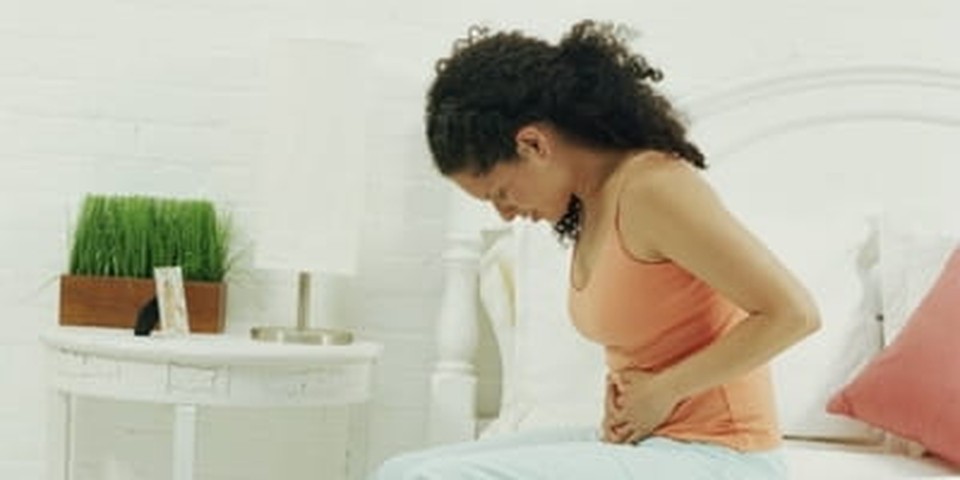Can Emotional Pain Create Physical Symptoms?

In recent months I’ve become alerted to a phenomenon I should have paid much more attention to over the years: emotional pain causes physical symptoms. This has been called “the mind-body connection.”
This is not a huge discovery, but rather recognition of what we’ve long known to be true—that our bodies will alert us to problems taking place in our lives. Additionally, our bodies will carry our emotional pain.
Cynthia was the most recent example of this seemingly increasing phenomenon. Forty years old and a very bright, professional woman, she has felt exhausted for the past five years, coinciding perfectly with the emotional drain she has felt in her marriage.
“I’ve gone to doctor after doctor, and they can’t give any definite answers,” she said. “My body just seems to be falling apart. I can’t help wondering if it has to do with my personal life.”
“What do you mean?” I asked.
“We’ve been fighting for years,” she said during her first hour at The Marriage Recovery Center where she and her husband, Dan had come for a Marriage Intensive. She looked tired and drawn.
“I’m tired all the time,” she shared. “I’ve got headaches, stomach problems, can’t sleep and feel out of sorts. The doctors have given me several different diagnoses, but they strongly suspect the main culprit may be my marriage.”
Dan shared how he, too felt tired from their constant fighting. “I guess I express it different. I feel angry most of the time. I’m so tired of the fighting.”
They seemed stuck in the “fight/ flight/ freeze” patterns of ways to respond to stress and conflict. All can cause variations in emotional tension and ultimately physical pain. It should not surprise us that our bodies are going to carry emotional tension.
Both were under a doctor’s care and both had heard that their troubled marriage was beginning to impact their physical health. Both had been advised to seek counseling to improve their marriage in addition to the medical interventions they had received.
Doctors have long shown a correlation between emotional well-being and physical well-being. Studies have long shown that our bodies respond to the way we think, feel and act. When stressed, anxious or upset, our bodies try to tell us something isn’t right. When stressed we are apt to experience one or more of the following:
- Back pain
- Change in appetite
- Chest pain
- Tiredness
- Headaches
- High Blood Pressure
- Insomnia
- Sexual Problems
- Anxiety
- Weight gain or loss
While our focus was on their relationship, I decided to take a closer look at their physical symptoms. While men have shared feeling discouraged and dispirited over their failing marriages, often turning to addictions to ease their emotional pain, women seem more likely to carry their emotional pain in physical symptoms.
Scripture is filled with examples of people who were overwhelmed with emotion and developed physical symptoms. One of them was Elijah, who in abject fear, ran away and hid under a tree (I Kings 19). God found him and encouraged him, beginning with addressing his most basic needs for rest, sleep and food.
Let’s consider a few emotional truths to be aware of and practical steps to remedy the problems:
First, be mindful of a mind/ body connection. Because our minds and bodies are connected, we will naturally experience emotional pain in physical ways. As we become more aware of our bodies and our response to stress, we can be alerted to issues that need to be addressed. Be aware of your level of stress, how you are handling it, and whether you are taking adequate care of yourself with basics such as rest, relaxation, exercise and proper nutrition.
Second, be mindful of pent up sadness. Bottled up feelings of sadness can leave us feeling drained, achy and anxious. Be aware of the possibility that you may need a good cry and increased support. We need to have close friends with whom we can share our sadness and grief and who will help us solve our emotional and relationship problems.
Third, be mindful of pent up hurt. While hurt must be addressed carefully, there is a time and place to share these vulnerable emotions. Be careful about allowing hurt to fester, becoming resentment and bitterness. These emotions sap our energy, causing our bodies to produce too much adrenalin. Bitterness has been called the poison pill we take to hurt others.
Fourth, be mindful of carrying too much anxiety. As with too much anger or bitterness, anxiety releases adrenalin and causes us to get stuck in the “flight/ freeze” mode of dealing with stress. We must have effective ways of releasing anxiety, such as with healthy thought patterns, sharing burdens with friends and behavioral releases through exercise.
Finally, be mindful of solutions. Seeing your physical symptoms are warning signs, consider actions you can take to solve your problems. Don’t get stuck in denial, believing that problems will go away in time. They will not necessarily go away and need attention to solve them. Take action, including expert counsel, to remedy problematic relationship or emotional problems. The cost is crossing a ‘bridge of change’ that is swinging, scary but safe. You are worth it and your health will keep score.
.png)
Publication date: April 29, 2014
Originally published April 29, 2014.





